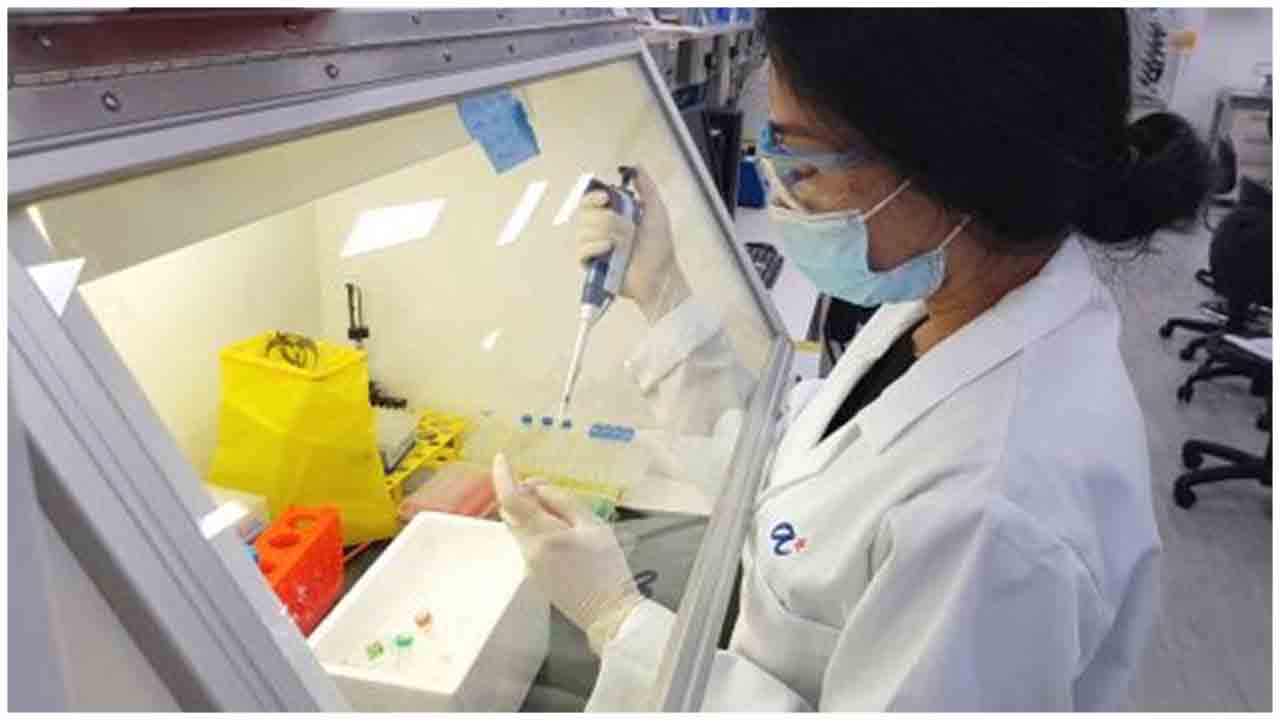Made-in-Singapore cancer drug, ETC-159, has achieved a new developmental milestone in achieving "First Patient First Visit" in Phase 1B. The first dose of ETC-159 has been administered to patients in this new phase of clinical testing, which for the first time, will look at efficacy in addition to assessing the safety of ETC-159 in treating different types of cancers.
This clinical study will include subgroups of colorectal, endometrial and ovarian cancer patients from two sites in Singapore (National University Cancer Institute, Singapore and National Cancer Centre Singapore) and up to seven clinical sites in the United States, including four confirmed sites, The University of Texas MD Anderson Cancer Center (Houston, Texas); University of Colorado (Aurora, Colorado); Washington University in St. Louis (Missouri); and Duke University (Durham, North Carolina). The trial is expected to be completed by 2023 at the latest.
ETC-159 was jointly developed by Duke-NUS Medical School (Duke-NUS) and the Agency for Science, Technology and Research (A*STAR), and first entered clinical trials in June 2015. ETC-159 targets a range of cancers including colorectal, endometrial, ovarian and pancreatic cancers, which contribute to a significant fraction of Singapore's cancer burden. A subset of these cancers is caused by hyperactivity in a cell signaling pathway known as the Wnt pathway.
ETC-159 is an upstream inhibitor of the Wnt pathway and the clinical trial will determine to what extent this drug can slow or halt the growth of Wnt-high cancers or if ETC-159 can enhance the activity of immunotherapy in those patients that normally do not respond to immunotherapy. It has previously been shown that increased expression of Wnt pathway-related genes is associated with drug resistance and exclusion of tumour-killing immune cells in the targeted types of cancers. The clinical trial uses ETC-159 to block the Wnt pathway so that immune cells can infiltrate the tumour. The trial will also combine ETC-159 with the immune checkpoint inhibitor pembrolizumab to stimulate the immune cells to kill tumour cells.
The Experimental Drug Development Centre (EDDC), a national platform for drug discovery and development, brought ETC-159 to the successful completion of Phase 1A clinical trials in July 2018. In that phase, proof of the drug's mechanism of action was achieved and a safe dose level established in 32 patients with advanced solid tumours.
EDDC, together with POLARIS at A*STAR's Genome Institute of Singapore (GIS), and the Diagnostics Development (DxD) Hub, have also developed a novel diagnostic test in agreement with the US FDA, to identify a particular subgroup of colorectal cancer patients predicted to respond well to ETC-159 due to the presence of gene fusions involving R-spondin genes (RSPO2 or RSPO3) in their tumours. Such patients comprise only about 8% of colorectal cancers and will be identified upfront, based on left-over tumour tissue to be included in Phase 1B of the study. The test will be performed at POLARIS for all clinical samples from this trial.
"A significant milestone for EDDC and Singapore has been achieved with the progression of ETC-159 into Phase 1B clinical trials. We are grateful for the collaboration and input of our partners, such as Duke-NUS, POLARIS, clinical investigators and others within Singapore and beyond, which has enabled the successful completion of the Phase 1A trial and led us to initiate this next critical stage of ETC-159 development. We are optimistic about rapidly recruiting patients for the next phase of the clinical trial given the unmet need and opportunity ETC-159 brings to these patients, and will continue leveraging great science to make great medicines." - Professor Damian O'Connell, CEO EDDC, A*STAR
"The progression of ETC-159 to this exciting new phase of study is the result of a tremendous Singapore team effort, spanning from basic bench science to international clinical trials. With this critical study, we will learn whether ETC-159, by targeting a set of cancers that has previously been untreatable, will indeed help patients in Singapore and internationally. This important milestone is yet another testament to the research excellence and strong collaborations Singapore can achieve with focused effort. I hope this is just one of many such achievements." - Professor David Virshup, Duke-NUS Medical School
"This study will help address a critical and unmet need in gastrointestinal cancers. The novel design to molecularly screening for R-spondin fusion colorectal cancers that may be driven by the Wnt pathway and to target them with ETC-159 and immunotherapy has never been done before. Furthermore, most gastrointestinal cancers particularly colorectal cancers do not respond to immunotherapy. This may be due to the suppression of immune cells in the tumour by Wnt-related pathways. We hope that by combining ETC-159 and immunotherapy we can circumvent this problem and achieve long-lasting responses for our patients." - Dr Matthew Ng, Senior Consultant, National Cancer Centre Singapore (NCCS)
"The incidence of ovarian and endometrial cancers is rising in the developed world, with many patients presenting at advanced stages of the disease. Despite initial responses to chemotherapy, the majority of patients with advanced ovarian and endometrial cancer will experience disease recurrence and eventually develop the treatment-refractory disease. At the National University Cancer Institute, Singapore (NCIS), we have long recognized this unmet medical need and have consistently been working with various academic and industry partners to develop new therapeutic approaches for these hard to treat gynaecological cancers. This clinical trial represents a novel and exciting therapeutic concept for the treatment of ovarian and endometrial cancers. In our continual drive to find better treatments for our patients, we certainly look forward to adding this study to the burgeoning portfolio of early phase trials at the NCIS Developmental Therapeutics Unit." - Associate Professor David Tan, Senior Consultant, National University Cancer Institute, Singapore (NCIS).

 First dose of ETC-159 administered in Phase 1B of clinical trials, advancing the development of this drug to treat solid tumours
First dose of ETC-159 administered in Phase 1B of clinical trials, advancing the development of this drug to treat solid tumours











.jpeg)







.jpeg)

.jpg)










